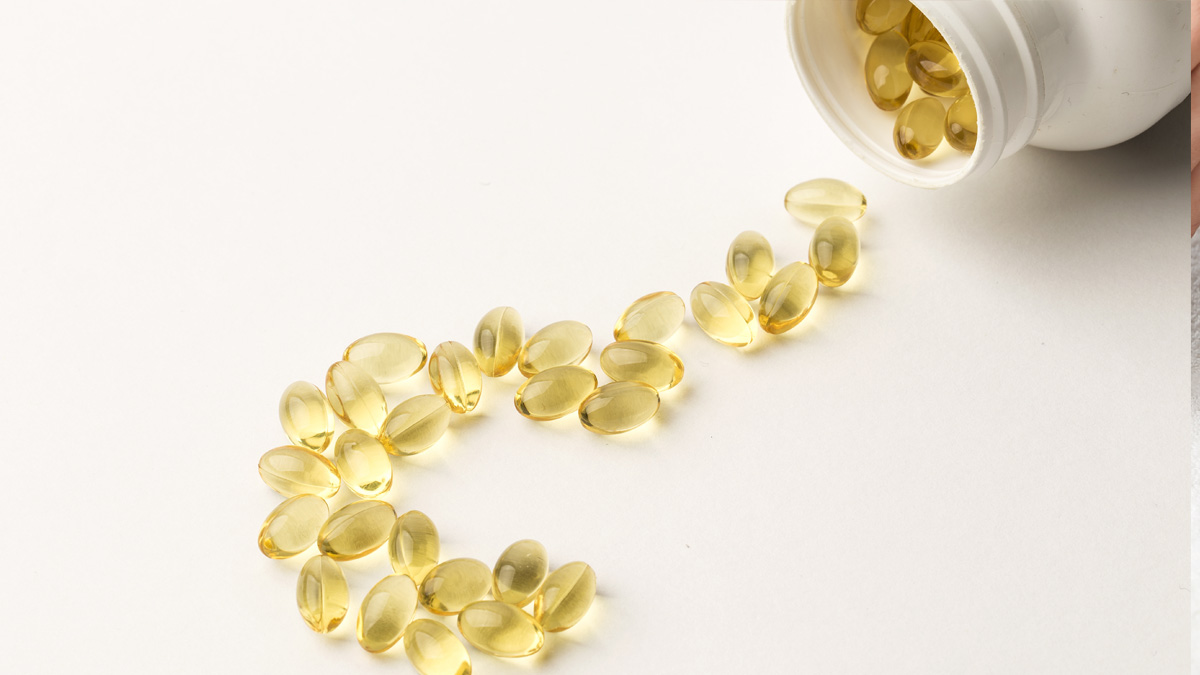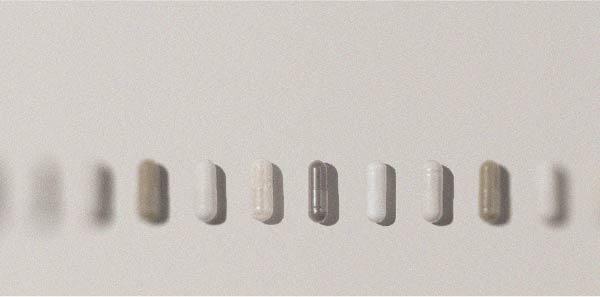What’s the difference between vitamin D2 and vitamin D3?
Are you wondering what the difference is between vitamins D2 and D3? And which of them is better? SuperSmart has the answers.

There are two forms of vitamin D in the body – D2 and D3: their empirical chemical formulae differ by a single carbon atom. We get them from different sources: D2 is found primarily in plant-based foods, while D3 is obtained from animal-origin foods, and is also produced when our skin is exposed to the sun’s rays.
What are vitamin D3’s characteristics?
Vitamin D3, or cholecalciferol, is synthesised from a sterol (complex lipid) called 7-dehydrocholesterol, naturally present in the body. When this sterol is exposed to the sun’s UVB rays, it is converted into vitamin D. Most of the vitamin D circulating in the body is produced in this way (1). That’s why we’re advised to expose our skin as much as possible to natural light. Vitamin D3 is also obtained from the diet, in particular from oily fish and egg yolk.
What are vitamin D2’s characteristics?
Vitamin D2 is a derivative of ergosterol, a sterol naturally present in the cell membranes of certain plants and fungi. Vitamin D2 is obtained by exposing ergosterol to the sun’s UVB rays. It is found in mushrooms (especially those exposed to UVB rays) as well as in vitamin D-fortified foods like margarine.
Which form of vitamin D should I choose?
Vitamins D2 and D3 are both metabolized in the liver and then converted in the kidneys into the active and usable form of vitamin D (2). However, research has shown that vitamin D3 increases the level of the active and usable form of vitamin D in the body to a greater degree (3). It is also less sensitive to heat and humidity than D2 and thus more stable (4).
As a consequence, if you wish to take a vitamin D supplement, vitamin D3 is the better choice. You have three options to choose from:
- Vitamin D3 5000 IU, with its high 5000 IU dose, is aimed more at those with a known deficiency or higher risk.
- Vitamin D3 Spray, a more convenient form, is recommended for those with a sensitive stomach.
- Vitamin D3 1000 IU, with its 1000 IU dose, is suitable for everyone.
References
- Thomas Ernandez, Catherine Stoermann-Chopard : Vitamine D et insuffisance rénale chronique : regain d’intérêt pour une vitamine oubliée. Rev Med Suisse. 2012, Vol. 8, pp 2140-2145.
- Laura Tripkovic, Helen Lambert, Kathryn Hart, Colin P Smith, Giselda Bucca, Simon Penson, Gemma Chope, Elina Hyppönen, Jacqueline Berry, Reinhold Vieth, and Susan Lanham-New : Comparison of vitamin D2 and vitamin D3 supplementation in raising serum 25-hydroxyvitamin D status: a systematic review and meta-analysis. Am J Clin Nutr. 2012, Vol. 95(6), pp 1357–1364.
Keywords
14 Hours
great products and prices
great products and prices
Marie
6 Days
Easy to navigate site
Easy to navigate site, had what I was searching for, good price. easy order-check out
James Tucker
12 Days
My skin is clearing up nicely!
Pretty good for my skin so far.
Christian
14 Days
The new packaging is excellent
The new packaging is excellent - finally! No more squashed boxes and torn envelopes.
GORAN
15 Days
Great Product
Great Product
Larry Garrett
19 Days
Quick shipping
Quick shipping; good price. No issues!
Mary McCarty
21 Days
Thr product is very good and is helping…
Thr product is very good and is helping me on my health. Then is always on time
LUGO Luz
23 Days
Buying was fine
Buying was fine. I had problems with the website not recognizing my login info, and had to call to get it fixed. Other than that, everything was good.
David S. Clark
24 Days
Your super maca and super ginseng are…phenomenal
Your super maca and super ginseng are phenomenal supplements that compliment each other when taking them together. Fantastic feeling of well-being and lots of mid day energy without the crash.
Keith Mason
26 Days
I have had amazing results with every…
I have had amazing results with every supplement I've purchased. I am extremely satisfied with this company
kirstin Torres
26 Days
Fine products
Fine products . They are on the leading edge of online supplements. The only issue -so far-is they sometime run out of subscription items.
Jason Argos
29 Days
The ordering process is very user…
The ordering process is very user friendly and the products always come in a timely manner.
CARTER Rhonda
30 Days
The price for Dr
The price for Dr. Pero's AC-11 is reasonable and in line with his views. (my former colleague). Keep it pure.
CAMPBELL Clayton
33 Days
Right on every time.
Right on every time.
Arthur Nicholas
36 Days
They are cheaper than everyone else and…
They are cheaper than everyone else and the shipping was fast. Great company.
Patricia Adams




